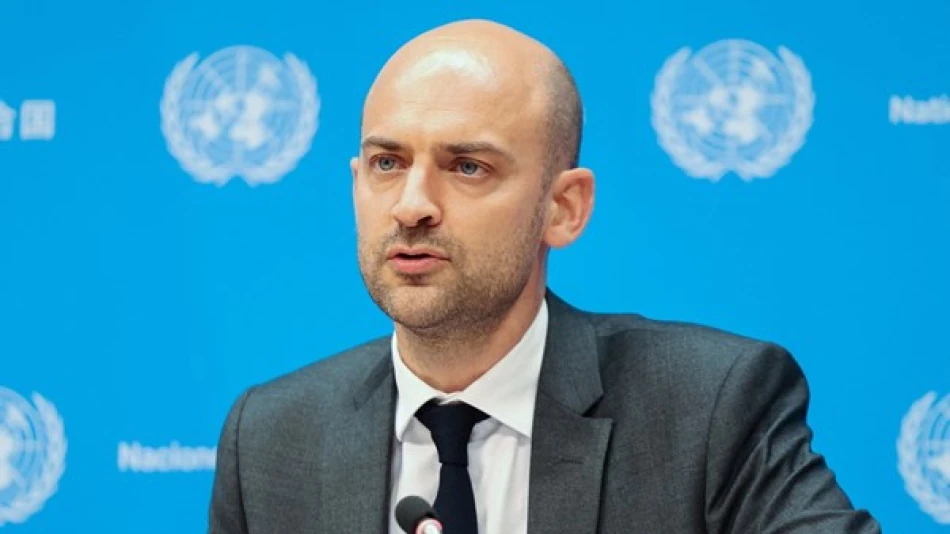
France Applauds UK's Stance on Recognizing Palestinian Statehood
France and Britain Signal September Timeline for Palestinian State Recognition
France has welcomed Britain's announcement that it intends to recognize Palestinian statehood, marking a coordinated European push that could reshape Middle East diplomacy. French Foreign Minister Jean-Noël Barrot praised the UK's position as joining "the momentum that France created for recognizing a Palestinian state," with both nations targeting September's UN General Assembly as their timeline for formal recognition.
Britain Sets Conditional September Deadline
British Prime Minister Keir Starmer announced that the UK will recognize a Palestinian state in September if Israel fails to take "vital steps" in Gaza, including agreeing to a ceasefire. This conditional approach represents a significant shift in British foreign policy, moving from the traditional stance of recognition only following a negotiated settlement.
"I have always said that we will recognize a Palestinian state as a contribution to a real peace process, at a moment when the two-state solution has the greatest possible impact," Starmer stated. "With this solution currently under threat, the time has come to act."
European Momentum Building
The coordinated timing between France and Britain suggests a broader European strategy to pressure both sides toward renewed negotiations. French President Emmanuel Macron had announced days earlier that Paris would recognize Palestinian statehood during September's UN General Assembly in New York.
This European alignment carries particular weight given both nations' permanent seats on the UN Security Council and their historical roles in Middle East diplomacy. France's colonial history in the Levant and Britain's mandate period in Palestine give their recognition efforts additional symbolic significance.
Strategic Timing and Market Implications
The September timeline coincides with the UN General Assembly's annual session, providing maximum international visibility for any recognition announcements. This coordinated approach could trigger a domino effect among other European Union members, potentially isolating the United States in its traditional opposition to unilateral recognition moves.
For regional markets, the announcements signal increased diplomatic pressure that could either accelerate peace negotiations or heighten tensions. Energy markets and regional currencies often react to shifts in Middle East diplomatic dynamics, particularly when major powers coordinate policy changes.
Breaking with Traditional Frameworks
Both France and Britain are departing from the long-standing Western position that Palestinian statehood should emerge only through direct negotiations with Israel. This shift reflects growing frustration with the stalled peace process and represents a calculated gamble that external pressure might restart meaningful dialogue.
The conditional nature of Britain's announcement—linking recognition to Israeli actions in Gaza—creates a diplomatic deadline that could either incentivize Israeli flexibility or prompt preemptive diplomatic countermeasures. This approach mirrors recent European strategies of using recognition as leverage rather than reward.
Global Recognition Landscape
Currently, 139 of the 193 UN member states recognize Palestinian statehood, but major Western powers have largely refrained. Sweden's 2014 recognition within the EU created precedent, while recent recognitions by Ireland, Spain, and Norway in 2024 have built momentum for broader European action.
The Franco-British coordination suggests that September's UN session could witness the most significant expansion of Palestinian recognition since the 1988 declaration of independence. This would fundamentally alter the diplomatic balance and potentially influence future Security Council dynamics on Middle East resolutions.
Most Viewed News

 Layla Al Mansoori
Layla Al Mansoori






